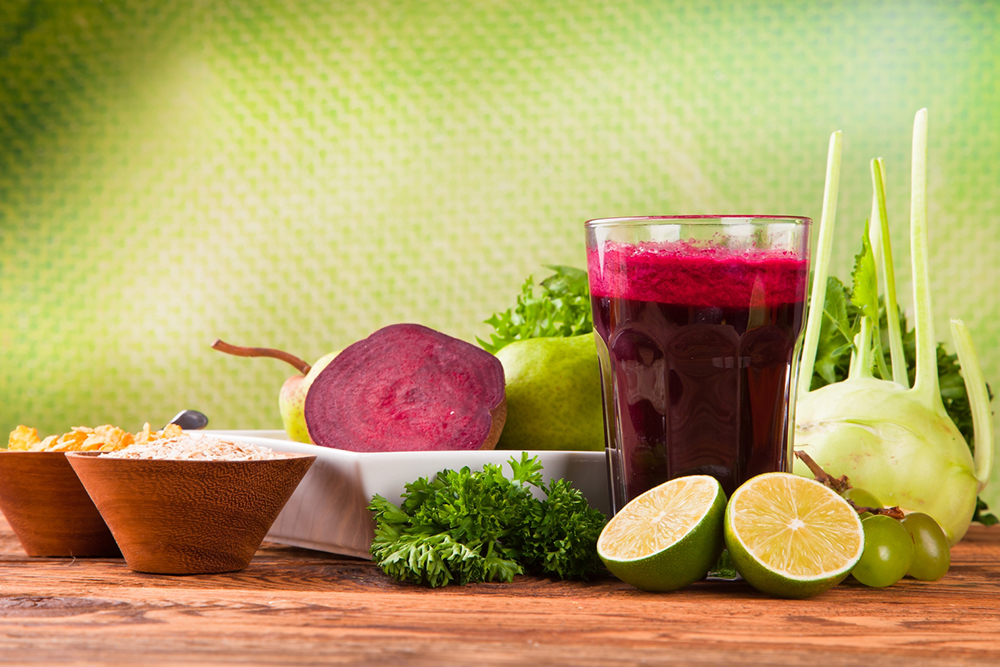8 Nutrients That Help Improve Blood Flow
The blood is crucial for the body to function, as it provides oxygen and nutrients that organs need to carry out vital tasks. So, problems with blood circulation can lead to various health issues, including muscle pain and weakness, pale skin, chest pain, and numbness. When dealing with such issues, it is important to consult a healthcare professional and get appropriate care. Additionally, providing the body with key essential nutrients can help improve blood circulation.

Nutrients that help improve blood circulation
1. Vitamin C
This nutrient helps increase nitrous oxide production in the body. Blood vessels relax and dilate better with increased nitrous oxide production in the body. This helps improve blood circulation and lower blood pressure. So, adding sources of vitamin C to daily meals can help improve blood circulation. Foods like oranges, strawberries, Brussels sprouts, potatoes, broccoli, lemons, and blackcurrants are rich sources of vitamin C.
2. Magnesium
This mineral helps blood vessels relax, enhancing overall blood flow. Magnesium-rich foods include black-eyed peas, chickpeas, tofu, nuts, seeds, spinach, cooked tempeh, dark chocolate, and avocadoes. Making simple nutrition-based changes like adding seeds to morning cereal or boiled spinach leaves to sandwiches can help increase magnesium levels in the body.
3. Potassium
This mineral functions as a vasodilator, i.e., it dilates blood vessels. It also relaxes vessel walls, helping lower elevated blood pressure. So, adding potassium to daily meals in the right quantities is essential when dealing with poor blood circulation issues. While one can ask a licensed healthcare professional for good-quality potassium supplements to increase blood flow, one should also consider getting the mineral from food sources. Dried fruits, such as raisins, dried figs, and apricots, spinach and other leafy greens, beet greens, bananas, winter squash, beans, and lentils are a few foods rich in potassium.
4. Copper
The endothelial cells line blood vessel walls, and copper helps develop and repair these cells. As a result, the blood vessels relax, enhancing the blood flow. So, it is essential to supplement daily meals with copper-rich foods like oysters, organ meats, shiitake mushrooms, lobsters, leafy greens, and dark chocolate.
5. Iron
This is one of the key minerals for adequate blood circulation. The body needs iron to form hemoglobin, a part of red blood cells , which is responsible for supplying oxygen throughout the body. Leafy green vegetables and organ meats are known to be the richest sources of iron. That said, foods like eggs, peas, lentils, poultry, dates, beetroot, veal, and certain whole grains like quinoa also contain iron. Additionally, seafood like salmon, tuna, and shellfish are rich in iron.
6. Flavonoids
They are natural plant chemicals commonly found in fruits and vegetables. Certain flavonoids are known to enhance vascular function and lower blood pressure. While flavonoid supplements can boost blood flow, some of the best natural sources of these compounds are foods like onions, tomatoes, lettuce, kale, berries, and grapes. Additionally, these foods have anti-inflammatory and cholesterol-lowering properties.
7. Vitamin B3 (niacin)
A key role of niacin is to enhance blood flow levels. Additionally, it helps lower cholesterol. To increase niacin or vitamin B3 intake, one can add foods like red meat, nuts and seeds, legumes, bananas, brown rice, and fortified cereals and breads into the meals.
8. Omega-3 fatty acids
This nutrient is known to prevent the clogging of blood vessels and enhance the dilation of blood vessels. So, this is how it improves blood circulation. Fatty fish like salmon, tuna, herring, and mackerel are the best sources of omega-3 fatty acids. Additionally, plant oils, nuts, and seeds can be added to meals to increase omega-3 intake.
In addition to opting for natural nutrient sources, one can ask a licensed healthcare professional to recommend the best boost blood flow supplements to increase blood to meet nutrient intake needs, if necessary.
Tips to boost blood flow
1. Engage in cardiovascular exercises
Cardio workouts like jogging, brisk walking, swimming, cycling, and skipping are among the best ways to improve blood circulation. So, one should incorporate these activities into their daily exercise routine. Even something as simple as walking or getting on the treadmill for half an hour daily can contribute to better blood flow in the body .
2. Try green and herbal teas
Green and herbal teas, although somewhat caffeinated, contain antioxidants that improve overall health, especially cardiovascular health. They are also known to boost blood flow. So, it’s a good idea to occasionally sip on green, black, and herbal teas.
3. Wear compression socks
These socks exert pressure on the calves and lower legs, which makes blood flow upward. As a result, the body has continuous blood flow throughout the circulatory system.
4. Get massages
There’s nothing more relaxing than massage therapy. Besides helping relieve stress, massages also enhance blood circulation. So, one should book sessions with a massage therapist to help boost blood flow.
5. Stay hydrated
Water helps liquefy or thin out the blood, helping it easily flow through blood vessels. So, having plenty of water throughout the day is important, especially when dealing with poor blood circulation. One should also have other healthy fluids like fresh fruit juices, smoothies, and soups.
6. Practice yoga
Yoga has several movements and poses that involve bending, stretching, and twisting. These help with vein compression and decompression, which enhances blood flow. So, one should practice yoga at least a few times a week when dealing with blood circulation issues.


